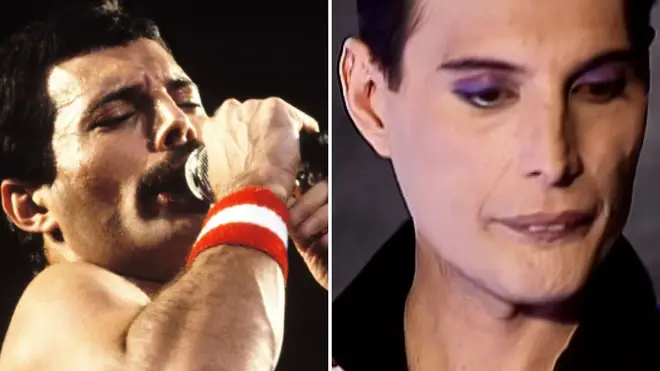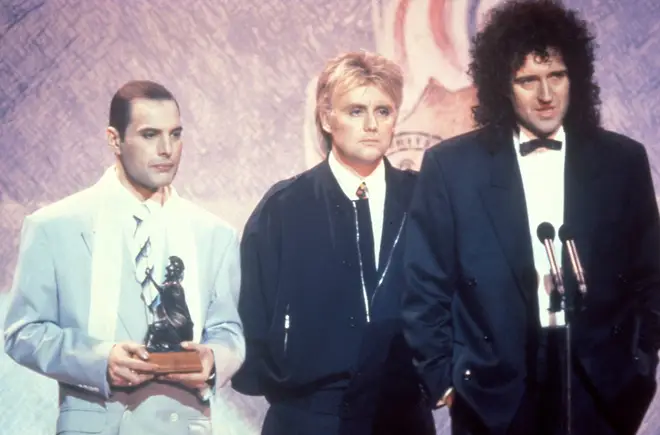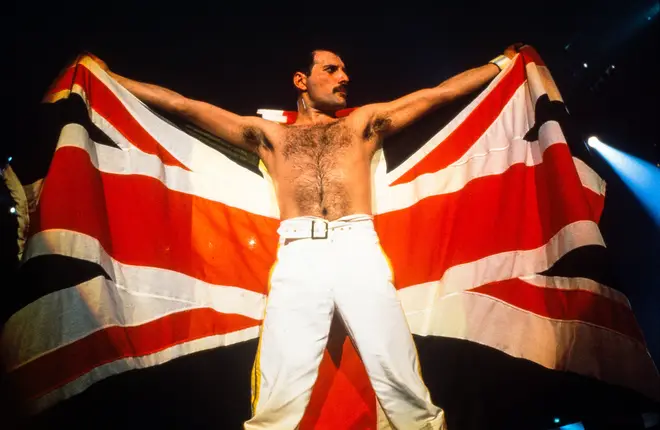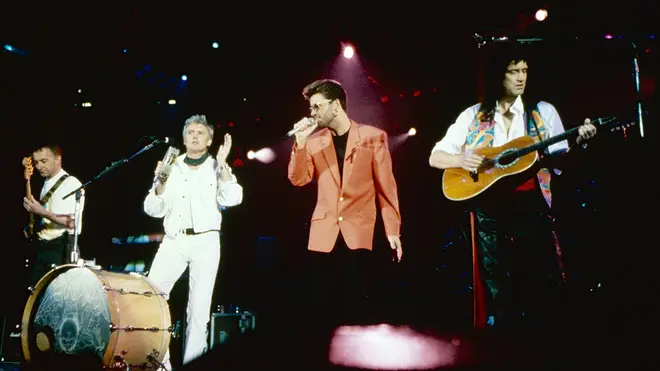On Air Now
The Smooth Late Show with Martin Collins 10pm - 1am
10 November 2021, 12:05

A new documentary reveals Freddie Mercury's heart-breaking words he said to his close friends as he "slowly let go".
As the lead singer and frontman of iconic rock band Queen, Freddie Mercury defined what it was to be a rock 'n' roll showman.
Not only his prowess on the stage, strutting to and fro whilst holding the audience (no matter the size) in the palm of his hand, but he also possessed one of rock music's greatest voices.
His exuberance, charisma, talent, and humour were unparalleled.
This is exactly why nearly 30 years on from his tragic passing, that he remains firmly in the hearts and minds of music lovers around the world.
As the anniversary of his death on 24th November 1991 approaches, a new BBC documentary has delved into the final months of his life.

Freddie lived a life of rock 'n' roll excess, and made no qualms about it. But after he was diagnosed with AIDS in 1987 he understandably put the breaks on.
In the years after, his appearance changed drastically as he looked pale and thin only going on to make a handful of public appearances.
His friend Anita Dobson recalls Freddie beginning to "slowly let go" six months before his eventual death at the age of 45.
Brian May's wife Dobson remembers Freddie saying to her: "I remember he said ‘When I can’t sing anymore darling, then I will die. I will drop dead’.”
Despite being gaunt, thin, and lacking energy, Freddie still made incredible music with his Queen bandmates up until his untimely death.

Queen - These Are The Days Of Our Lives (Official Video)
Though Queen hadn't performed since their legendary sold-out show at Knebworth in 1986, they were still busy in the studio, releasing their final album Innuendo in 1991.
The video for 'These Are The Days Of Our Lives' was the last time the public saw Freddie before he died.
Freddie only announced that he was battling AIDS the day before he died.
Roger Taylor talks about his beloved bandmates' choice to privately fight AIDS until his death in the new documentary:
“It was announced before he died but he did not want to be the object of pity or scrutiny and within 24 hours it was gone. It was probably perfect timing. Bloody good move I thought.”

Brian May also recalls the moment when Freddie told him, Roger, and bassist John Deacon about his AIDS diagnosis:
“The first time we really knew was when we got together in Montreux. Freddie just sat down and said ‘OK, you guys probably know what is going on with me. You know what I am dealing with. I don’t want to talk about it."
“I don’t want to take any action apart from carrying on the way we are. I want to carry on making music for as long as f**king can. We will not dwell on it and we will go on."
"We all went ‘OK’ and that was it. There was a discussion about what we would say if we were questioned and we all agreed to deny it to protect Freddie."
“We felt quite comfortable about that. When we were in the studio and the studio doors were closed we had fun. For Queen as a family it was fantastic. We were never closer. But then Freddie was suffering.”

Freddie Mercury: The Final Act recounts the final days of Freddie and how those around him coped.
His dear friend and personal assistant Peter Freestone, who cared for Freddie up until his passing, said that Hollywood actor Rock Hudson dying of complications with AIDS severely affected Freddie:
"It made Freddie face the fact that instead of us being immortal and it happening to somebody else, it was getting closer and closer to home."
The documentary also touches on run-up to The Freddie Mercury Tribute Concert at Wembley Stadium in 1992, which was watched by an estimated half a billion people worldwide.
Brian adds: “Freddie lived for his music and loved his music and he was proud of himself as a musician above everything else.”
Freddie Mercury: The Final Act will be shown on BBC2 later this month, and will be available to watch on BBC iPlayer from then onwards.